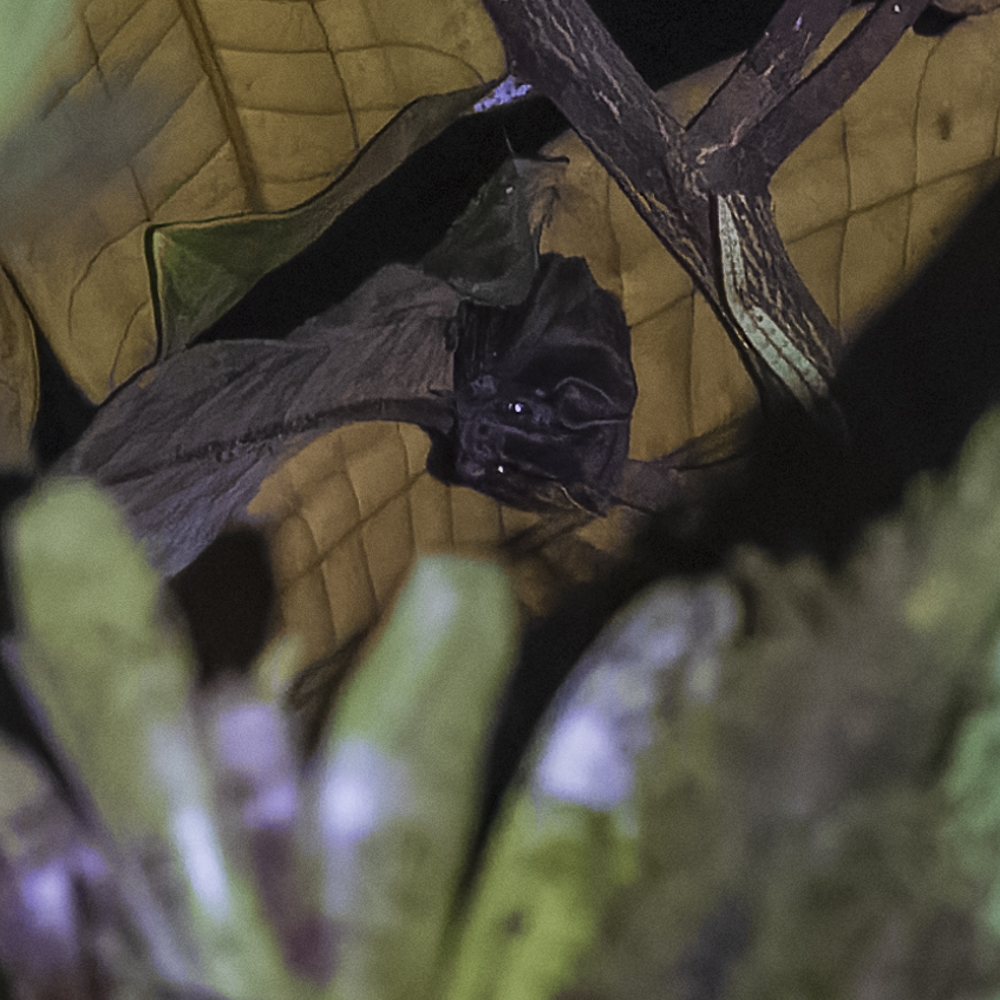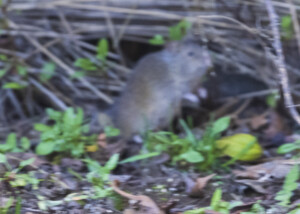
Request for help with identification of some small mammals from Ecuador

Hi guys,
I am working on my trip report from my trip to Ecuador last October/November. I still had some pictures of a few small mammals and on the chance it might be possible to ID them based on my pictures in combination with the location I thought it would be a good thing I check with you guys first before I put them all in my trip report as unidentified. I do not own a good mammal guide to Ecuador and I was not able to get anywhere with iNaturalist. I appreciate any input!
De first 3 mammals were photographed at about 1300m at Maquipucuna Lodge
Mammal 1 (picture 1): a bat literally hanging out in the canopy of the trees near the lodge. There was an identical looking one next to it.
Mammal 2 (picture 2): a mouse, seen on a short night walk not far from the lodge.
Mammal 3 (picture 3): a mouse opossum, seen not far from mammal 2. Based on my previous experiences with mouse opossums I suspect a conclusive identification to species level will be impossible.
Mammal 4 (picture 4 and 5): Small rodent. I have a bit more hopes for this one since it was photographed in quite a distinct habitat: behind Tambo Condor Restaurant at about 3000m, it was feeding on fallen bird seed. The area around it was mostly grasland with just a few trees. It seems to have a short tail.
Cheers,
Lennart
Edit: I see uploading pictures did not go exactly as planned. It hope it’s still obvious which is which.
6 Comments
-
Fiona Reid
I think the bat may be Enchisthenes hartii. It doesn’t look like it has a dorsal stripe (did it)? They have large eyes, a small noseleaf, and narrow facial stripes. They are small-medium sized.
The arboreal rodent is probably a Rhipidomys.
The terrestrial rodent is a species of Akodon
-
Michael
Yes, certainly Enchisthenes hartii.
About the climbing mouse: Rhipidomys looks good, but R. latimanus, the species most likely in that regions is quite bright orange or reddish. That would leave R. leucodactylus, which is also fairly large and might fit the scale of the palm fruits it is sitting in. That species is at it’s northern range limit in Pichincha, but then, who knows about rodent distributions in Ecuador. So, yes, probably that.
Thanks Fiona!
Leave a Reply
You must be logged in to post a comment.


Michael
Well, with some guesswork on sizes and color patterns, based on Tirira’s field guide, I’d say
1) Artibeus lituratus
2) Oligorhizomys spodiurus
3) Marmosa isthmica
4) Akodon mollis
I’m curious to hear what others think …